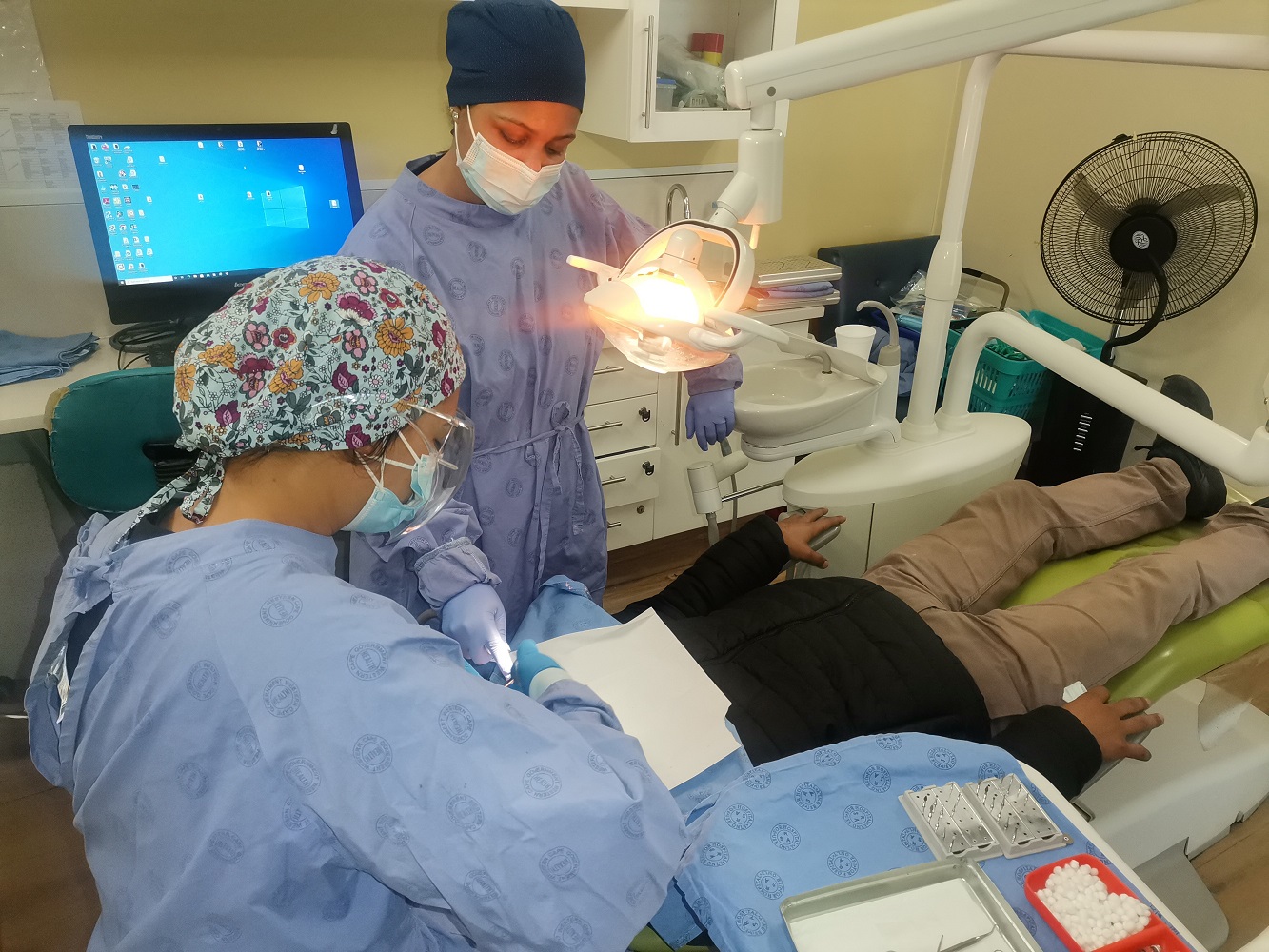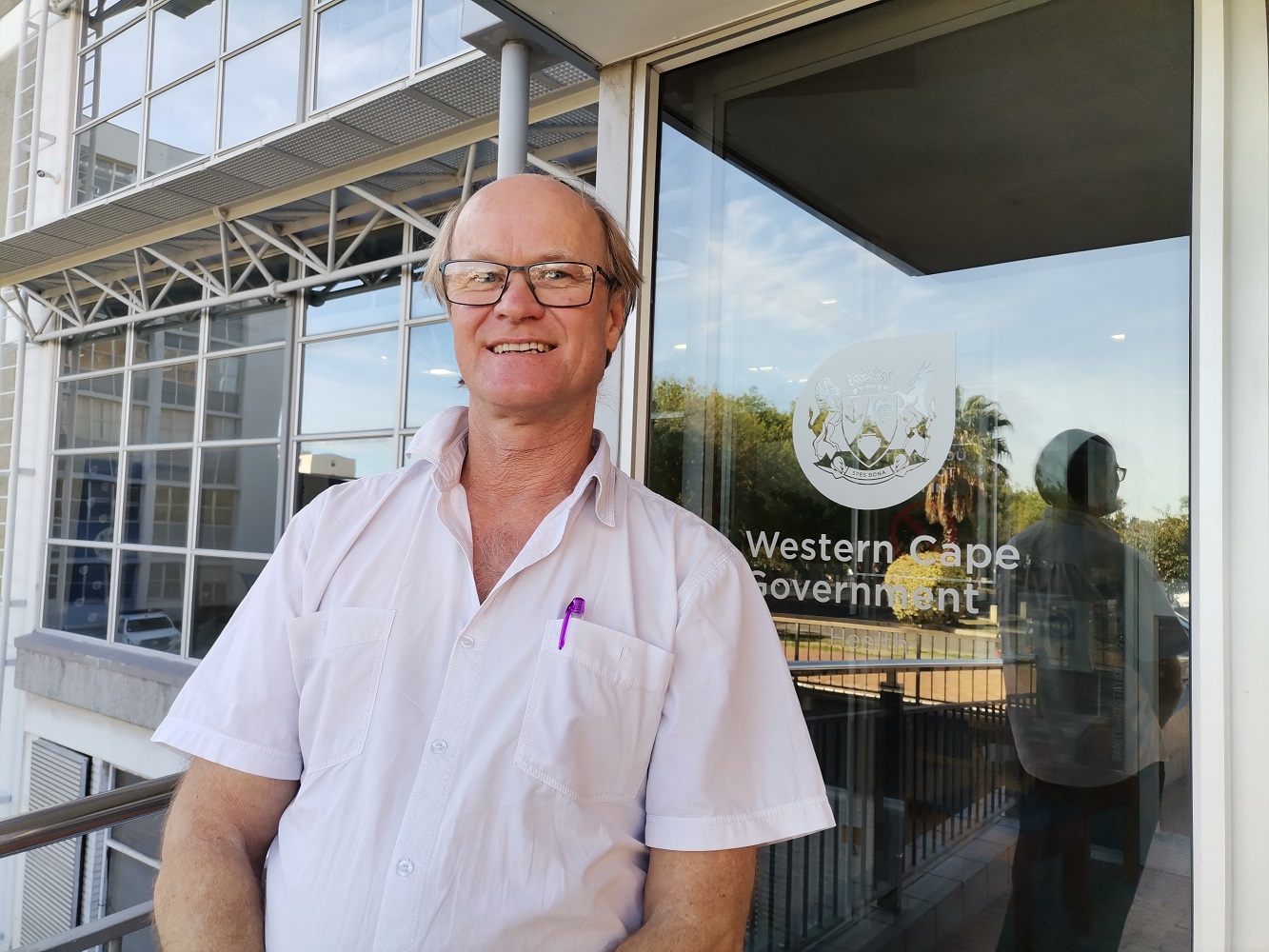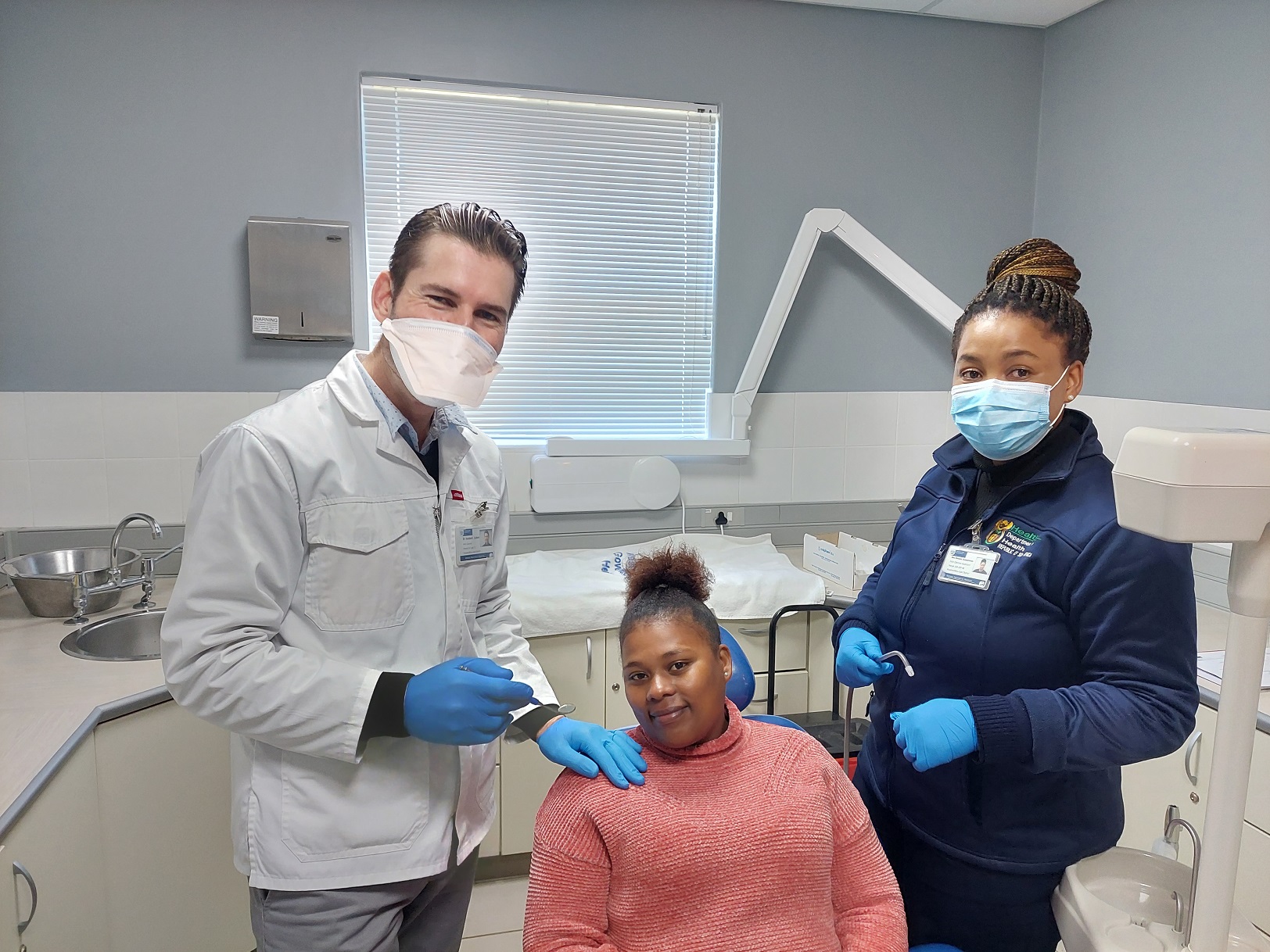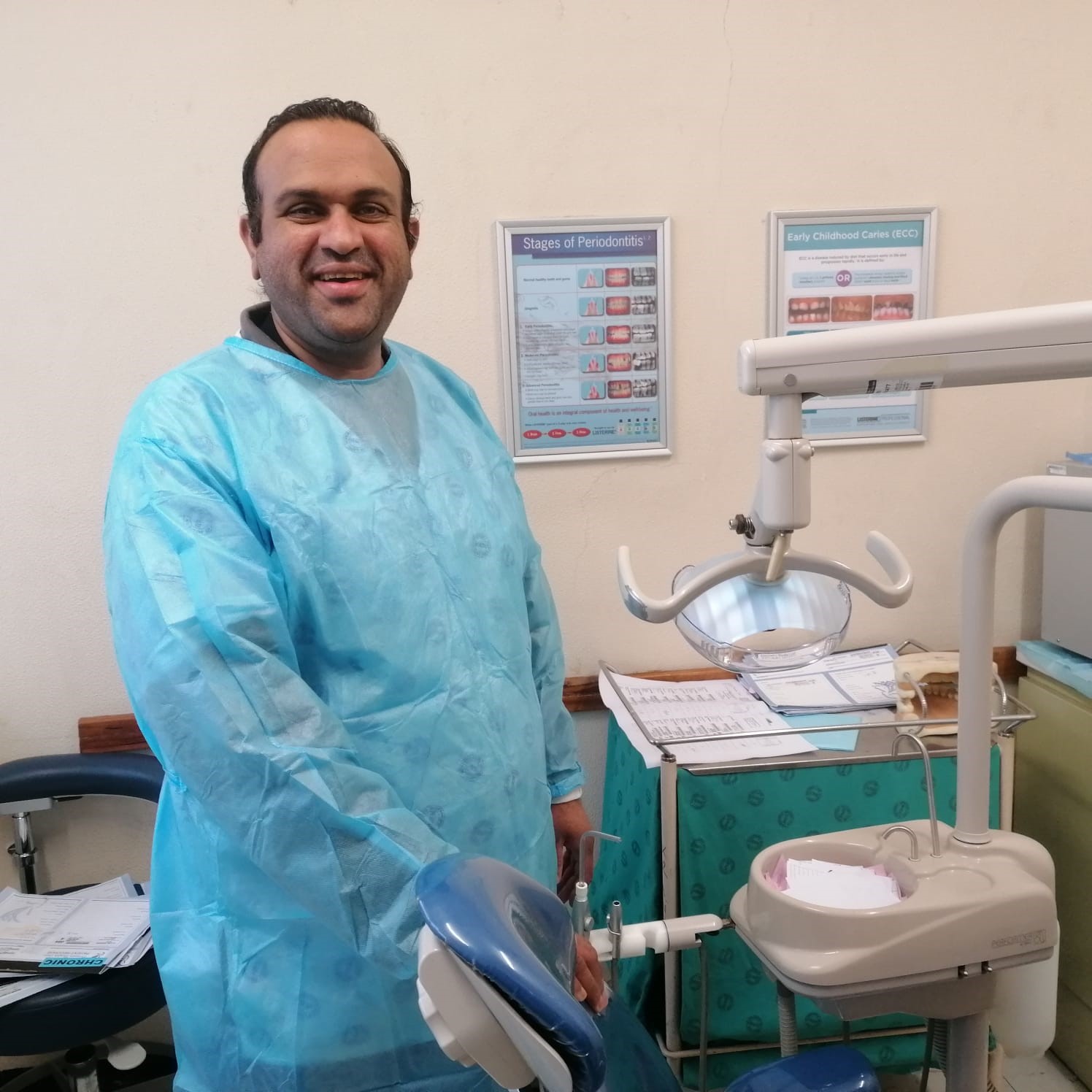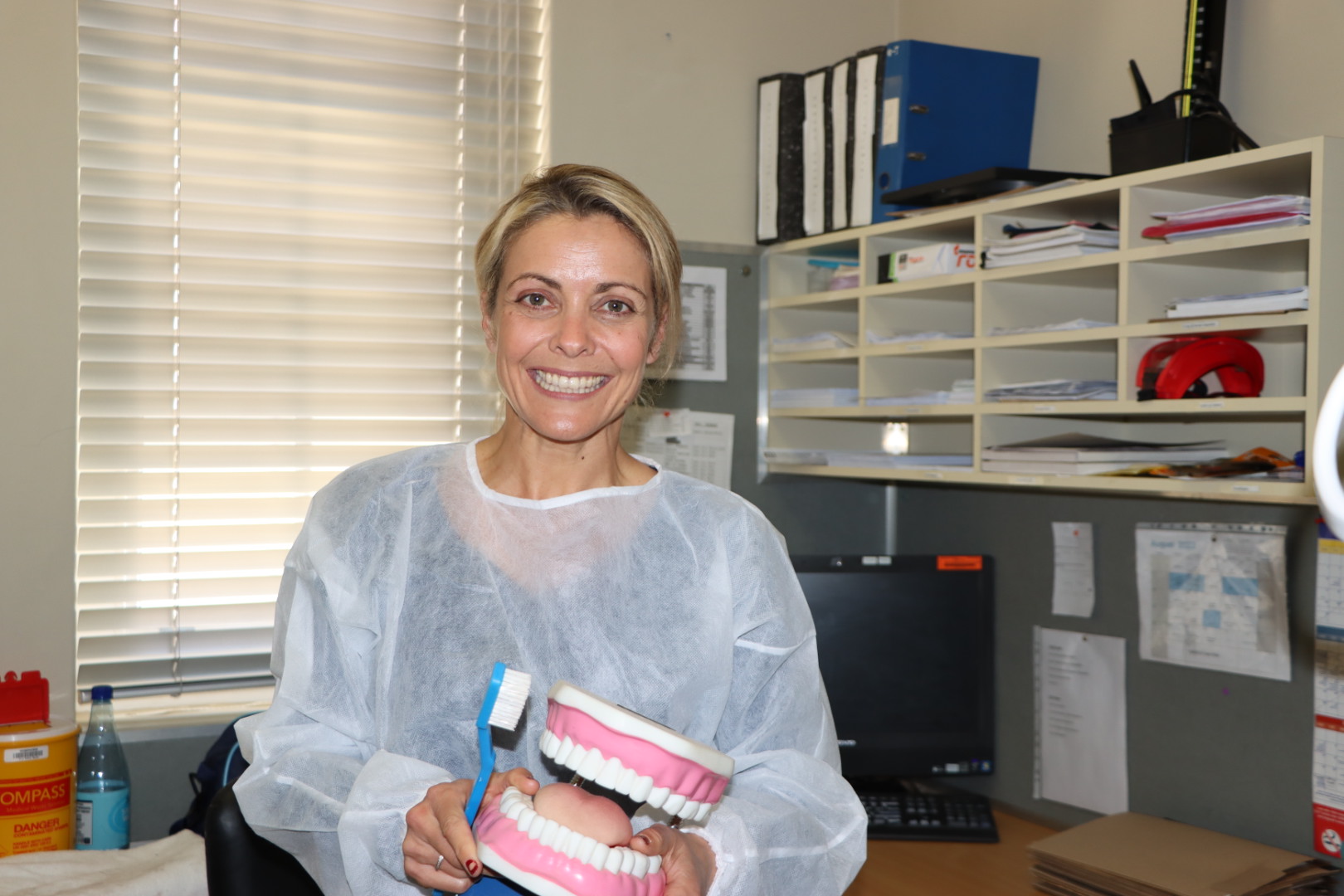
News
Healthcare workers keep smiles clean and bright across province
Our oral health is more important than we may realise. From eating to smiling, our mouth, teeth and gums form part of our daily functioning. Without good oral health habits, we may develop bad breath, tooth decay and gum disease.
The good news is that most oral health problems are preventable. This is why healthcare workers are committed to ensuring that every resident has access to a healthy smile in our province. Whether from a mobile outreach van or a dedicated oral health room at a local clinic, community members can access free health services to care for their teeth.
As we mark National Oral Health Month this August and ahead of World Oral Health Month in September, health workers share tips to encourage good oral hygiene. Professor Neil Myburgh, from the Tygerberg Academic Oral Health Centre, says healthy teeth and gums starts with teaching children good hygiene habits. “We see children come in and their teeth are not straight, or they experience other dental issues, and this affects their self-esteem. But it’s not just teeth, it’s our gums too. Bad teeth can lead to a loss of self-esteem, poor health, and pain.”
Dr Lindy Poole, dentist in the Theewaterskloof sub-district, says it’s never too early to establish a healthy oral hygiene routine with children. “During outreaches we provide dietary advice, hand out toothbrushes and toothpastes and explain brushing techniques,” says Dr Poole.
The lessons taught today could last a lifetime, adds dentist in the Garden Route district, Dr Julien Joubert. Dr Joubert has shared tips to help protect your baby and older children’s teeth.
- Use a clean, damp wash cloth (with toothpaste the size of rice grain) to gently wipe clean your baby’s first teeth and the front of the tongue, after meals and at bedtime.
- Never put your child to bed with bottle or food.
- If your child wants to have the bottle or sippy cup in between meals, try to fill it with water only.
- Visit the dentist as soon as your baby’s first teeth appears.
- Avoid giving your children sugary drinks (including juice) or sticky foods.
- Help your children to brush their teeth at least twice a day.
Dr Bhawesh Sukha, who works as a dentist at the Site B CHC in Khayelitsha, says healthy teeth and gums are equally important for teenagers and adults. “We should not abandon the good oral hygiene habits we were taught as young children. As adults, there are many ways that we can protect our teeth and gums. This includes visiting your dentist every six months or twice a year, and changing your toothbrush every three months, where possible.”
Other ways to protect your teeth and gums includes brushing your teeth twice a day for two minutes in a circular motion using toothbrush and small amount of fluoride toothpaste. “Try to floss teeth at least once a day and drink water after eating food or drinking any beverages. Avoid placing of tooth jewellery or any piercings in the mouth area,” says Dr Sukha.
Smoking and excessive alcohol consumption may also harm oral health in adulthood. Smoking tobacco products and drinking poses a major risk to your oral health. You may develop bad breath, tooth discolouration and oral health disease over time. However, if you follow the advice from your healthcare worker, you can protect your teeth and save your smile.
Dental experts warn that avoiding your oral health can lead to cavities. Cavities are caused by a combination of factors, including bacteria in your mouth, frequent snacking, sipping sugary drinks and not cleaning your teeth well. Dental cavities result when plaque forms on the surface of a tooth and converts the sugars contained in foods and drinks into acids that destroy the tooth over time. A continued high intake of sugars, inadequate exposure to fluoride and a lack of removal of plaque by toothbrushing can lead to cavities, pain and sometimes tooth loss and infection.
DENTURE CARE
There are many ways to care for your mouth when you have dentures. Professor Myburgh shares advice on looking after your mouth and dentures.
- Your gums and palate still require care after getting dentures. Rinse or brush your mouth with plain or salt water at least twice each day.
- Clean your dentures with soap and water daily, then rinse and leave to dry for a few hours (overnight) before replacing them. Stand over a basin of water or do this over a towel as they may break if they fall.
- If you notice any damage to your dentures, do not to fix them yourself as this will damage them. Take them to your dentist for repair.
HOW TO ACCESS CARE IN YOUR COMMUNITY
Dental staff at our primary healthcare facilities will be able to tell you how to keep your mouth, gums and teeth in good health because preventing tooth decay is easier than fixing it.
You can access oral healthcare services from primary healthcare facilities in our province. More complicated matters that can’t be treated at the clinic will be referred to the next level of care, such as the Tygerberg Academic Oral Health Centre. Visit our website to find your nearest clinic: https://www.westerncape.gov.za/dept/health/facilities/944 or access healthcare at the following facilities in the Northern and Tygerberg District:
- Delft CHC
- Symphony CDC
- Bishop Lavis CDC
- Elsies River CHC
- Goodwood CDC
- Reed Street CDC
- Kraaifontein CHC
Western Cape Government Health is committed to bringing healthcare services closer to your doorstep. Look out for outreach teams in your community and schools.
Western Cape Government Health encourages members of the public to make use of the free services offered at outreaches. Remember, if you have an emergency, visit your nearest clinic.

